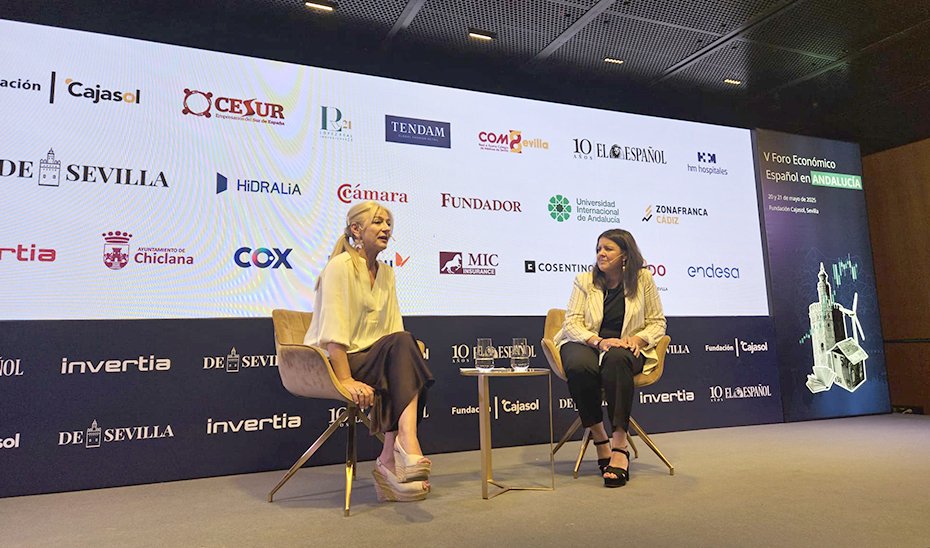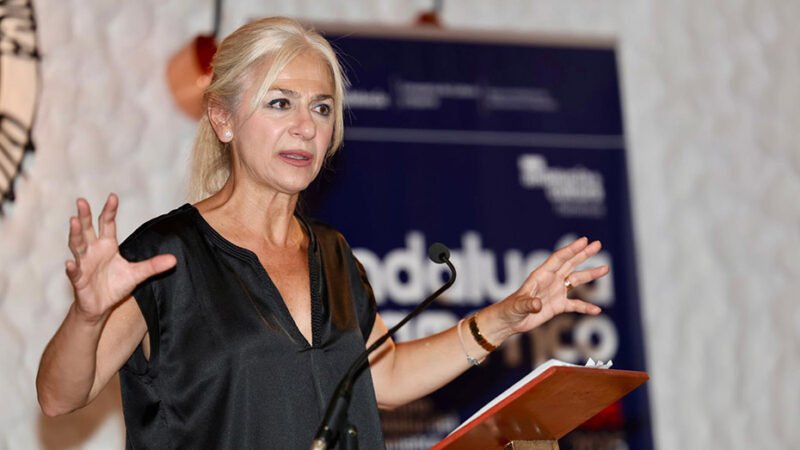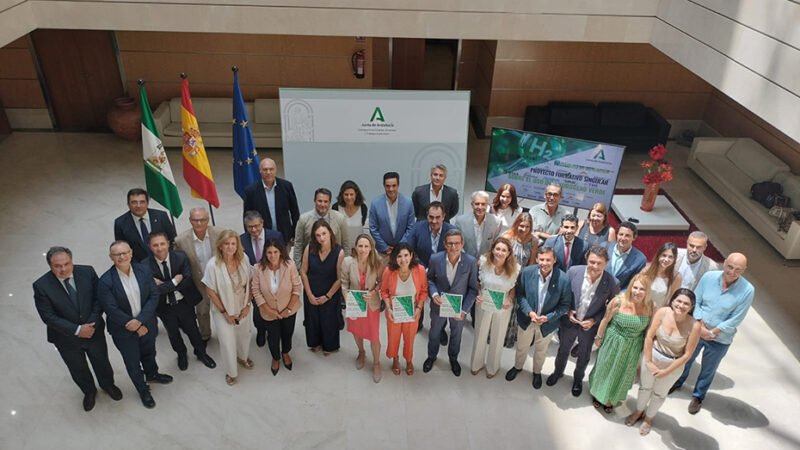Cultura anuncia ayudas para la moda andaluza

The Minister of Culture and Sports, Patricia del Pozo, has announced at the fifth edition of the Economic Forum organized by El Español-Invertia the upcoming call for grants for the promotion of Andalusian fashion, the first ones directed by the Andalusian government to a creative sector that currently employs 8,648 people and has 2,429 companies in the autonomous community of Andalusia.
In her speech, Patricia del Pozo has stated that the new line of incentives from the Ministry of Culture and Sports will, on one hand, support fashion designers in terms of creation and participation in events held in Andalusia, nationally, and internationally, and on the other hand, it will support fashion shows.
The grants, whose regulatory bases will soon be made public with the aim of enabling the call in the last months of this year, will be in a competitive concurrence regime to, in the words of the minister, «address a traditionally overlooked creative sector that combines innovation and creativity, attracting attention at national and international forums.»
The Minister of Culture has reviewed the government’s policy in this area under Juanma Moreno. «We are convinced that strengthening culture is building society and also an opportunity for social and economic development,» she explained, highlighting the growth in investments (26.2% compared to 2018), accompanied by rigor and efficiency in spending and dialogue with all.
She detailed that cultural employment has grown in Andalusia by 44% since 2019, increasing from 50,645 to 73,003 workers. Likewise, creative companies have grown in the same period from 25,338 to 32,645, the majority of which are self-employed and small businesses, while almost half of the tourists who come to Andalusia are attracted by its cultural and heritage offerings.
«In Andalusia, we carry out a cultural policy that supports the most current creations, with the backing of the most representative manifestations of our identity,» said Patricia del Pozo, adding that «we are the first autonomous community to open support lines for the conservation, protection, and inventory of religious historical heritage.»
She also emphasized «the importance of the approval of the Flamenco Law of Andalusia, which will be reflected in the General Strategic Plan of Flamenco for its dissemination, conservation, and research, to protect its important social fabric, the flamenco clubs, and to promote its inclusion in educational centers and university classrooms.»
Among other matters, Del Pozo also noted that all contributions to the draft Law of Cultural Heritage of Andalusia are being analyzed, now that the phase of consultation and public information has ended, while expressing satisfaction with the selection of the candidacy ‘Ceremonial Italica’ as the Spanish proposal to UNESCO for inclusion in the World Heritage List.
«This decision is a decisive endorsement for the candidacy, confirming that the reformulation as ‘Ceremonial Italica’ carried out by the Ministry of Culture is correct,» said the minister, adding that, after this initial achievement, the Italica candidacy will become Spain’s proposal for submission to UNESCO in 2026 and subsequent evaluation by the World Heritage Committee in 2027.
Additionally, she highlighted the push to extend cultural proposals of excellence to all corners of Andalusia, as exemplified by the ‘Andalucía Sinfónica’ program, which has taken the four institutional orchestras on tour for the first time to the other Andalusian capitals, as well as the exhibitions of the Picasso Museum in Málaga at the Fine Arts Museum in Seville (ancient masters) and in Granada (Jeff Koons).
Finally, she stated that «Andalusia has gone from hosting eight national and international sports events in 2018 to over 200 in 2024, including the highlight of the Copa del Rey final between F.C. Barcelona and Real Madrid. «These events leave a very significant legacy, both economically and in terms of prestige, but they also promote sports practice, which has increased from 42% to 56% in five years.»






